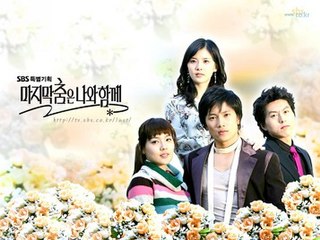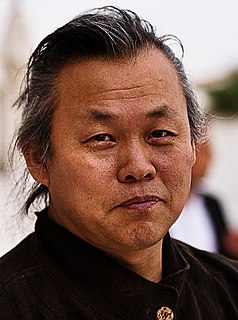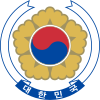The Ho-Am Prize was established in 1990 by Kun-Hee Lee, the Chairman of Samsung, with a vision to create a new corporate culture that continues the noble spirit of public service espoused by the late Chairman Byung-chull Lee, founder of Samsung

Daisaku Ikeda is a Buddhist philosopher, educator, author, and nuclear disarmament advocate. He has served as the third president and then honorary president of the Soka Gakkai, the largest of Japan's new religious movements. Ikeda is the founding president of the Soka Gakkai International (SGI), the world's largest Buddhist lay organization with approximately 12 million practitioners in 192 countries and territories.

South Korea was the host nation and competed as Korea at the 1988 Summer Olympics in Seoul. 401 competitors, 269 men and 132 women, took part in 218 events in 27 sports.
The Seoul Philharmonic Orchestra (SPO), founded in 1948, is one of the oldest and most famous orchestras in South Korea. Its first foreign tour came on a 1965 trip to Japan, followed by performances in Southeast Asia in 1977, the United States in 1982, 1986 and 1996, a 1988 tour of Europe before the Seoul Olympics that year, and a 1997 performance in Beijing. The Philharmonic is an incorporated foundation since 2005. After music director Myung-Whun Chung resigned in 2015, the SPO is currently searching for new artistic leadership.

Save the Last Dance for Me is a 20-episode South Korean television series that aired on SBS from October 23, 2004 to January 2, 2005 on Saturdays and Sundays at 21:45. Starring Eugene, Ji Sung, Ryu Soo-young and Lee Bo-young. The drama revolves around two lovers who don't let amnesia get in the way of their romance.
The Korean national basketball team represents South Korea in international men's basketball competitions. It is administered by the Korea Basketball Association.

Parliamentary elections in North Korea, creating the 12th Supreme People's Assembly, were held on 8 March 2009. They were originally scheduled to be held in August 2008 but were postponed for unknown reasons. Observers of North Korea speculated that it was in relation to Kim Jong-il's ill health.

The Golden Disc Awards is an annual South Korean music awards ceremony that honors achievements in the local music industry.

South Korean literature is literature written or produced in South Korea following the division of Korea into North and South in 1945. South Korean literature is primarily written in Korean, though English loanwords are prevalent.

Go Go 70s (Hangul: 고고70) is a 2008 South Korean musical drama film set in the 1970s.

South Korea participated in the 2011 Asian Winter Games held in Almaty and Astana, Kazakhstan, from 30 January to 6 February 2011.

Five Senses of Eros is a 2009 South Korean omnibus film with five short films depicting love and desire, but in different styles and genres. The shorts are: His Concern, directed by Daniel H. Byun; I'm Right Here, directed by Hur Jin-ho; The 33rd Man, directed by Yoo Young-sik; In My End Is My Beginning, directed by Min Kyu-dong; and Believe in the Moment, directed by Oh Ki-hwan.

The Spies, also known as The Spy, is a 2012 South Korean action comedy film, starring Kim Myung-min, Yum Jung-ah, Byun Hee-bong, Jung Gyu-woon, Yoo Hae-jin and directed by Woo Min-ho. It is about North Korean undercover spies living mundane lives in South Korea. The film was released on September 20, 2012, and attracted 1,310,895 admissions nationwide.
Kun-woo, also spelled Keon-woo or Gun-woo, is a Korean masculine given name. It was the sixth-most popular name for baby boys born in South Korea in 2008, with 1,722 being given the name. The meaning differs based on the hanja used to write the name. There are 15 hanja with the reading "kun" and 42 hanja with the reading "woo" on the South Korean government's official list of hanja which may be used in given names.

Healer is a 2014-2015 South Korean television series starring Ji Chang-wook, Park Min-young and Yoo Ji-tae. It aired on KBS2 from December 8, 2014 to February 10, 2015 on Mondays and Tuesdays at 22:00 for 20 episodes.
IM Chung-Shik (Hangul: 임충식; Hanja: 任忠植; also translated YIM Chung Sik was a South Korean general and politician. His service started during the Korean War. His Bon-gwan is Jangheung.
The Korean Popular Culture and Arts Awards is an annual South Korean government-run awards ceremony hosted by the Ministry of Culture, Sports and Tourism's Korea Creative Content Agency.The ceremony, which was first held in 2010, "honor[s] those who have made a contribution to contemporary pop culture and the arts, including actors, singers, comedians and models."

























